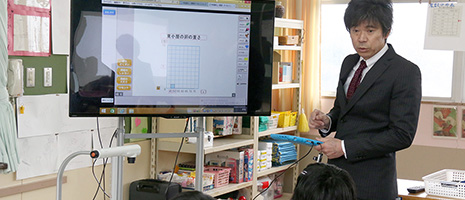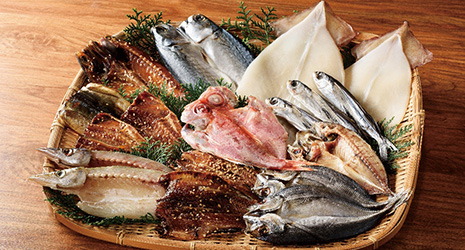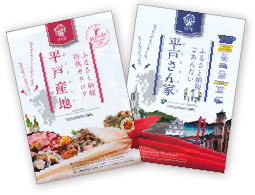Home > Highlighting JAPAN > Highlighting Japan February 2017 > New Pioneers of Local Development
Highlighting JAPAN


New Friends of an Unfamiliar Home Town
Hirado City in Nagasaki Prefecture is the unlikely recipient of one of the largest amounts of out-of-town donations in Japan.
Introduced in April 2008 for the purpose of alleviating fiscal disparities between the urban and local governments, furusato nozei (hometown tax) is a system under which people can donate money to local governments. Local governments with dwindling populations and difficulties in attracting companies to their regions have trouble with finances. Under the furusato nozei donation system, an individual can freely choose his/her preferred local government to receive the donated money (paid tax). After the reduction of 2,000 yen (17 USD), the remaining value of the donation is tax deductible. Furusato nozei donors can also have a reduction in the amount of their resident’s tax to be paid to the government of the local town where they currently reside in the next fiscal year, in addition to a reduced amount of income tax for the current fiscal year. In Japan there is a custom of sending a gift as a token of appreciation to people who provided a helping hand. In a similar manner, some local governments offer regional goodies and other gifts in return for tax donations to donors under the furusato nozei donation system. In addition, the corporate hometown tax system was launched in April 2016 for corporations who made donations to regional donation plans.
Located in the northwest part of Nagasaki Prefecture on the main island of Kyushu, Hirado City is entering the spotlight with a big increase in furusato nozei donations. Hirado was the base for Francis Xavier, the first Christian missionary to Japan, about 450 years ago. It was also famous as an international trading hub in the sixteenth and seventeenth centuries. The city is richly endowed with nature and its key industries are agriculture and fishing. As of January 2017, it has a population of about 33,000 and aging and depopulation continue to advance, as is the case with many other local governments.
Factors that contributed to the big increase in the furusato nozei donations were the gift catalog format and point system introduced by the municipality ahead of all others in the nation in 2013. Tax donors are granted points according to the amounts of their donations, for example 4,000 points for a donation of 10,000 yen (88 USD) or more and 8,000 points for a donation of 20,000 yen or more. They can choose the thank-you gifts that they like from the catalog within the range of points that they hold and have the gifts sent to themselves. There is no expiration date for the validity of the points and these points can be kept for the following fiscal year or thereafter. In addition, people can make donations multiple times in a fiscal year and add to their points by repeatedly making tax donations.
The City of Hirado has made an effort to offer a good selection of thank-you gifts and created an attractive catalog of various combinations of local farm and marine products. At the same time, the City made it possible for people to choose thank-you gifts online and use credit cards for the transactions. The most popular thank-you gift is an assortment of dried marine products, which is available to tax donors holding 4,000 points or more. Hirado wagyu sirloin steak and an assortment of fresh local fish are also popular among the tax donors.
These unique initiatives of the city received a great response and have been widely covered by the mass media. In fiscal year 2014 (April 2014 – March 2015), Hirado City suddenly emerged as the municipality that received the highest amount of donations through the furusato nozei system in the nation, at about 1.46 billion yen (13 million USD). Moreover, in fiscal 2015, the amount of donations to Hirado City reached about 2.6 billion yen, coming close to the city’s tax revenue of about 2.8 billion yen. The number of donations was about 46,700 cases, which is significantly larger than the total population of the city.
“In 2016, we began the full-fledged use of the tax donations. Focusing on fostering human resources, promoting tourism and industries, and planning attractive towns as the three pillars, we are conducting various activities to make use of the tax donations, including the purchase of buses for local bus lines, the development and improvement of the environment for information education, the promotion of barrier-free accommodation facilities, and the support of business startups,” says Kazuhiro Matsuse of the Finance Department of the Hirado City Government. “There are people who directly come to the office of the city government to make tax donations. We are truly grateful to the tax donors.”
The furusato nozei donation has garnered a remarkable amount of public interest. In fiscal 2015, the total amount of tax donations to all local governments came to about 165.3 billion yen (1.5 billion USD), representing a significant increase of about 4.3 times the level of the previous fiscal year. In addition, the number of cases of tax donations reached about 7.26 million cases (3.8 times year on year). This reflected such factors as the fact that local governments increased the number of thank-you gifts and the fact that there was an increase in the number of private companies’ portal sites enabling an individual to compare thank-you gifts easily. Recently, people are increasingly making furusato nozei donations to projects with specified uses of the donated money, including nature conservation, welfare and post-disaster reconstruction.
“We would love to have the people who became interested in Hirado City through the furusato nozei donation system to visit the city for sightseeing,” says Matsuse. “We would like to see as many people as possible move to the city, if they come to like Hirado.”
© 2009 Cabinet Office, Government of Japan







